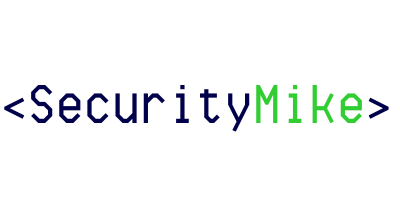In the current digital era, cybersecurity has become a major worry for both people and businesses. To safeguard sensitive data and systems from malicious activities and unauthorized access, strong cybersecurity measures must be put in place due to the rising frequency & sophistication of cyberattacks. Cybersecurity tools are essential for protecting devices, networks, & data from online threats. These tools cover a broad spectrum of innovations and methods for identifying, stopping, and handling cyberattacks. Security information and event management (SIEM) tools, antivirus software, intrusion detection systems, and encryption software are a few examples of cybersecurity tools. A wide range of cybersecurity threats can be effectively protected against by using any one of these tools, which each focus on a different area.
Key Takeaways
- Cybersecurity tools are essential for protecting networks and sensitive data from unauthorized access and malicious activity.
- Antivirus software is the first line of defense against malware, viruses, and other cyber threats, and should be regularly updated to ensure maximum protection.
- Firewall protection is crucial for safeguarding networks from unauthorized access and intruders, and should be configured to restrict and control incoming and outgoing traffic.
- Intrusion detection systems are important for identifying and responding to suspicious activity on a network, and can help prevent potential security breaches.
- Virtual Private Networks (VPNs) are essential for securing remote connections and ensuring that data transmitted over the internet is encrypted and secure.
Whereas intrusion detection systems watch network traffic for unusual activity, antivirus software concentrates on finding and eliminating malware. Security event data is gathered and analyzed by SIEM tools from various sources in order to spot possible threats, while encryption software locks down data by making it unreadable to unauthorized parties. It is impossible to exaggerate the significance of these cybersecurity tools in protecting against online threats. In the face of changing cyber threats, they create a multi-layered defense strategy that assists both individuals and organizations in safeguarding their digital assets, preserving data integrity, and guaranteeing business continuity. The creation & application of strong cybersecurity tools are essential to preserving a safe digital environment in light of the ongoing evolution of cyberthreats.
Advanced Functions for Preventive Defense. Automatic updates, real-time scanning, and heuristic analysis are common features of contemporary antivirus programs that help proactively detect and neutralize new threats. Having trustworthy antivirus software is crucial for shielding networks and devices from a variety of cyberthreats, especially in light of the rise in ransomware & malware attacks. Entire Protection Against Cyber Attacks.
By constantly scanning for harmful activity and stopping it from jeopardizing the integrity & security of systems and data, antivirus software offers an essential layer of protection. It protects against a variety of online dangers, such as ransomware, spyware, worms, Trojan horses, and adware. Development of Antivirus Products. Modern antivirus programs have developed to include cutting-edge features like behavior-based detection, cloud-based scanning, and machine learning algorithms in order to keep up with the constantly changing landscape of cyber threats. Strong antivirus software is essential for both individuals and organizations to reduce the risks posed by cyber threats in today’s networked digital world.
As a barrier between a reliable internal network and unreliable external networks, like the internet, firewall protection is another essential cybersecurity tool. By keeping an eye on and regulating inbound and outgoing network traffic in accordance with preset security rules, it serves as a gatekeeper. Using hardware, software, or a combination of the two, firewalls can be used to create a secure perimeter that thwarts potential security breaches and unauthorized access. Firewalls guard against intrusions, data exfiltration, and other malicious activities that can jeopardize a network’s security by examining network packets & screening traffic according to pre-established rulesets.
Protecting networks from a variety of cyberthreats, such as attempted illegal access, malware infestations, denial-of-service (DoS) attacks, and other network-based exploits, requires the use of firewalls. Because they enforce security policies that specify which kinds of traffic are permitted or prohibited based on variables like source and destination IP addresses, port numbers, & protocols, they offer an essential layer of defense. Virtual private networks, or VPNs, can also be set up on firewalls to provide secure connections for branch offices or remote users. Firewalls are essential for protecting network infrastructure and data assets from outside threats, especially in light of the growing popularity of remote work and cloud services. Firm firewall protection must be implemented by enterprises in order to reduce the risks of illegal access and data breaches, since cyberattacks will always focus on network vulnerabilities.
Cybersecurity tools called intrusion detection systems (IDS) are made to watch network traffic for indications of malicious activity or policy violations. In order to spot possible security incidents like malware infections, unauthorized access attempts, & unusual activity, they examine network packets, log files, and system events. In-network sensors (IDS) can be used to track traffic at critical junctures in a network, or they can be host-based agents that keep an eye on specific device activity. IDS can automatically block traffic from a particular source or quarantine infected devices in order to mitigate potential threats when suspicious activity is detected. Advanced persistent threats, external intrusions, insider attacks, & other cyberthreats are just a few of the many cyberthreats that require the use of intrusion detection systems in order to detect and neutralize.
By giving businesses real-time visibility into their network environments, they enable them to identify security incidents early on and take appropriate action before they become serious breaches. Also, IDS are essential to compliance efforts because they offer thorough logs & reports that prove that reasonable precautions were taken to safeguard sensitive information & systems. Setting up strong intrusion detection systems is crucial for enterprises to proactively guard against possible security breaches and unauthorized access attempts because cyber threats & attack vectors are becoming more sophisticated. VPNs, or virtual private networks, are cybersecurity tools that establish private, encrypted connections over the internet between corporate networks and remote users. They guarantee that information transferred between the user’s device & the corporate network is secure and confidential while allowing users to access private network resources from outside locations. VPNs create secure tunnels using encryption protocols to shield data from being intercepted or eavesdropped on by unauthorized individuals.
Also, by hiding the user’s IP address and location, VPNs can offer anonymity, improving security and privacy when using public Wi-Fi networks and browsing the internet. VPNs are necessary for safeguarding distant connections and shielding private information from illegal access or interception. By permitting employees to access corporate resources from outside locations without jeopardizing data integrity or confidentiality, they play a critical role in enabling secure remote work. Also, VPNs are frequently used to get around geo-restrictions and censorship, allowing users to access websites and content that are geo-restricted from any location in the world. VPNs are now essential for any company looking to guarantee safe connectivity for their dispersed workforce, given the growing popularity of remote work policies and cloud-based services.
Organizations must deploy strong VPN solutions in order to reduce the risks of unauthorized access and data breaches, since cyber threats are still aimed at remote access points. An essential cybersecurity tool is encryption software, which transforms plaintext data into ciphertext using cryptographic algorithms & makes it unreadable without the right decryption key. Because only authorized parties are able to decrypt and access the information, it offers a way to safeguard sensitive data from interception or unauthorized access. To guarantee confidentiality & integrity throughout its lifecycle, encryption can be applied to a variety of data types, including files, emails, databases, and communication channels.
To further improve the security of encrypted data, contemporary encryption solutions frequently include features like key management, robust authentication, and secure key exchange protocols. Software with encryption built in is crucial for shielding private information from prying eyes and unscrupulous parties. By guaranteeing that data remains unreadable without the proper decryption key, even if it is compromised or intercepted, it offers an essential layer of defense.
Also, encryption is essential to compliance initiatives because it enables businesses to comply with laws pertaining to privacy and data security. Organizations must deploy strong encryption solutions to protect their data assets from unauthorized access or disclosure in light of the growing frequency of data breaches and cyberattacks that target sensitive information. Network devices, servers, applications, & security systems are just a few of the sources of security-related data that security information & event management (SIEM) tools gather, correlate, and analyze to give real-time visibility into an organization’s IT infrastructure. In order to spot possible security incidents, policy infractions, or unusual activity that might point to a security threat, SIEM solutions compile log data and security events.
They give businesses the forensic analysis tools, real-time alerting, and centralized monitoring capabilities they need to properly identify and address security incidents. Security incident and policy violation detection is crucial for spotting possible threats to an organization’s IT infrastructure, & SIEM tools are vital for this task. By combining logs and events from various sources into a single platform for analysis and correlation, they give enterprises thorough visibility into their network environments. Also, by offering thorough audit trails and reports that can be utilized to prove due diligence in safeguarding sensitive data and systems, SIEM solutions are essential to compliance efforts. For organizations looking to proactively guard against possible security breaches and unauthorized access attempts, deploying strong SIEM solutions is crucial given the complexity of cyber threats & regulatory requirements.
In summary, cybersecurity tools are essential for protecting against a variety of cyberthreats because they give businesses the ability to promptly identify, stop, and handle possible security incidents. There are many cybersecurity tools available to address various aspects of cybersecurity, ranging from antivirus software to intrusion detection systems, encryption solutions, VPNs, firewalls, and SIEM tools. Organizations can strengthen their defenses against cyberattacks & protect their sensitive information and systems from exposure or unauthorized access by putting strong cybersecurity measures in place that combine a number of these tools.
Investing in comprehensive cybersecurity tools is essential for individuals & organizations looking to reduce the risks posed by cyber threats in today’s digital landscape, as cyber attacks continue to evolve in sophistication and frequency.
If you’re interested in learning more about the latest threats in the cybersecurity landscape, you should check out this article on the rise of alpha ransomware. It provides valuable insights into a new and dangerous threat that could potentially impact your network security. Stay informed and stay protected.
FAQs
What are cybersecurity tools?
Cybersecurity tools are software programs or applications designed to protect computer systems, networks, and data from cyber threats such as malware, ransomware, phishing attacks, and other forms of cyber attacks.
Why are cybersecurity tools essential for protecting your network?
Cybersecurity tools are essential for protecting your network because they help to detect, prevent, and respond to cyber threats. They can help to identify vulnerabilities in your network, monitor for suspicious activities, and provide a layer of defense against cyber attacks.
What are some examples of cybersecurity tools?
Some examples of cybersecurity tools include antivirus software, firewalls, intrusion detection systems, encryption tools, vulnerability scanners, and security information and event management (SIEM) systems.
How do cybersecurity tools work?
Cybersecurity tools work by using various techniques such as signature-based detection, behavior analysis, and machine learning to identify and mitigate cyber threats. They can also provide real-time monitoring and alerts to help organizations respond to potential security incidents.
What are the benefits of using cybersecurity tools?
The benefits of using cybersecurity tools include protecting sensitive data, preventing financial losses from cyber attacks, maintaining the trust of customers and stakeholders, and ensuring compliance with data protection regulations. Additionally, cybersecurity tools can help to minimize downtime and disruption to business operations caused by cyber incidents.

